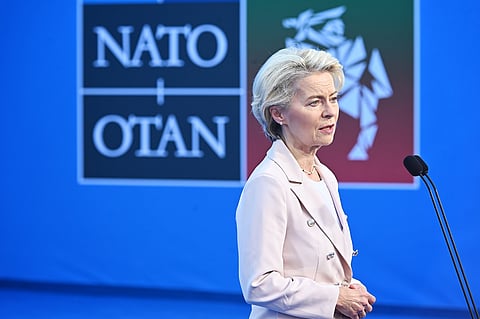

The European Commission has unveiled a comprehensive White Paper on Defence, urging member states to increase investments in the sector by the end of the year. The plan, part of the broader "ReArm Europe" initiative, aims to mobilize up to €800 billion over the next four years through collaborative procurement and pooled resources.
The White Paper, released on Wednesday, builds on the Commission's earlier proposal to strengthen Europe's defence capabilities. It outlines a roadmap for "Readiness 2030," focusing on closing critical capability gaps, fostering innovation, and creating a unified EU defence market.
A "Pivotal Moment" for European Defence
EU High Representative for Foreign Affairs and Security Policy Kaja Kallas described the initiative as a "pivotal moment" for the bloc. "The value we add by working together is priceless. It gives us a competitive advantage that is unrivalled anywhere in the world," she said during a press conference.
European Commission President Ursula von der Leyen emphasized the urgency of the plan, stating, "The era of the peace dividend is long gone. The security architecture we relied on can no longer be taken for granted. Europe must invest in defence, strengthen its capabilities, and take a proactive approach to security."
The Commission estimates that by allocating an additional 1.5% of GDP to defence over the next four years, member states could invest approximately €650 billion. This funding would address both immediate needs, such as supporting Ukraine, and long-term goals, including bolstering Europe's defence industrial base and technological innovation.
Key Measures to Strengthen European Security
The White Paper outlines several strategic priorities to enhance Europe's defence readiness:
Closing Capability Gaps: Addressing critical shortfalls identified by member states, particularly in areas like air defence, cyber capabilities, and military mobility.
Boosting the Defence Industry: Encouraging collaborative procurement and aggregated demand to support European defence manufacturers and stimulate innovation.
Supporting Ukraine: Increasing military assistance and integrating Ukrainian defence industries with European counterparts.
Streamlining the Defence Market: Simplifying regulations to create a more efficient EU-wide market for defence equipment.
Embracing Innovation: Accelerating the adoption of disruptive technologies, including artificial intelligence and quantum computing.
Enhancing Readiness: Improving military mobility, stockpiling essential supplies, and strengthening external borders, particularly with Russia and Belarus.
Strengthening Global Partnerships: Deepening cooperation with like-minded nations to address shared security challenges.
The White Paper also highlights the need to address chronic underinvestment in Europe's military capabilities, a issue exacerbated by years of inefficient spending. By fostering a more integrated and innovative defence sector, the Commission aims to ensure Europe is better prepared for future security challenges.
As von der Leyen noted, "We must buy more European. That means strengthening our defence technological and industrial base, stimulating innovation, and creating a true EU-wide market for defence equipment."
The plan comes at a critical time, as Europe seeks to balance immediate support for Ukraine with long-term investments in its own security and defence infrastructure. The White Paper represents a significant step toward a more resilient and self-reliant European defence strategy.